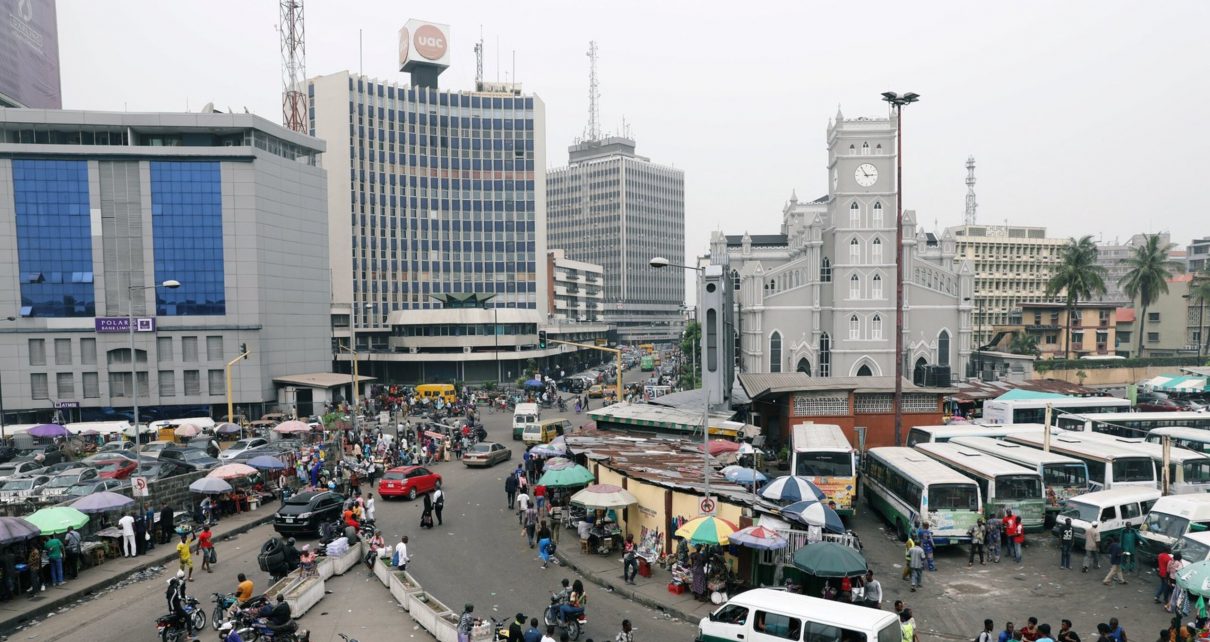…records over 20 deaths in one week
Lagos has recorded yet its highest single day incidence of COVID-19 infections of 654.
According to the latest report from the Nigerian Centre for Disease Control (NCDC), on the same day, there were 1204 new confirmed cases across Nigeria while seven deaths were recorded.
Warning earlier about the latest surge, the Lagos State Ministry of Health, on Monday said there was a consistent rise in cases since Christmas Day.
On Christmas Day, for instance, the ministry reported 296 cases alone, with a leap to 434 on 29th December 2020.
It counselled the continued public health practice of wearing of masks correctly, washing of hands and observing social/physical distancing.
Between Christmas Day and 4th January 2020, Lagos has recorded 22 deaths.
Till date, 91351 cases have been confirmed across Nigeria, 75699 cases have been discharged and 1318 deaths have been recorded in 36 states and the Federal Capital Territory
The 1195 new cases are reported from 21 states- Lagos (654), FCT (200), Plateau (60), Kaduna (54), Kano (40), Rivers (30), Edo (28), Nasarawa (25), Kebbi (19), Bauchi (18), Oyo (13), Akwa Ibom (12), Bayelsa(11), Ogun (11), Delta (9), Abia (8), Benue(5), Imo (3), Borno (2), Sokoto (1) and Osun (1).
Even with the latest surge in cases, the federal response to the pandemic is still activated at level 3.
What does a level 3 public health response mean?
Lexology.com, says a level 3 describes six different types of infection control measures, being physical distancing, contact tracing, on-premises customer and client prohibition measures, food and drink prohibition measures, specific measures for education entities, and specific measures for venue businesses.
A Level 3 Order requires that any business or service wanting to operate at Alert Level 3 must comply with the relevant infection control measures. Any business or service that does not comply with the relevant infection control measures for its category must remain closed, although certain work may still be undertaken at the closed premises (eg, cleaning, maintenance).
A key requirement imposed on such businesses by the L3 Order is that they must comply with on-premises customer and client prohibition infection control measures, which means that customer and clients:
a. May only enter their premises to “…collect goods through a method that minimises physical contact…” (and, in doing so, only to the minimum extent necessary)
b. May not enter a building
c. Must not come into close personal contact with staff.
Some businesses will be able to provide services in a way that meets the relevant infection control measures. Many businesses may allow customers to place orders online or by phone, and pick up goods purchased without entering a building and with minimal contact with staff.
Other interesting points to note about the infection control measures imposed by the L3 Order are:
All categories of businesses and services must comply with physical distancing measures, though the physical distance required is either one or two meters (depending on the category of business/services and whether one of the persons is involved in providing the business).
Businesses and services and venue businesses are required to put in place contact tracing measures.
Venue businesses may only allow their premises to be used for weddings, civil unions, and funerals.
Supermarkets, petrol stations, and pharmacies, which are essential businesses that are not subject to the ‘on-premises customer and client prohibition’ measure described above, are expressly prohibited from serving food and drink for consumption on premises.
A L3 Order is mostly permissive for businesses,
For individuals, It is still the case that, under Alert Level 3, everyone is required to remain isolated and quarantined in their homes, except for ‘essential personal movement’.
At an Alert Level 4, ‘essential personal movement’ is very limited, with the key permitted activities being accessing or providing essential businesses (eg, supermarkets), and limited recreation outdoors (excluding activities such as swimming).
In contrast, at Alert Level 3, people are permitted to do the following:
a. Access businesses and services that meet the infection control requirements for businesses, and are within the same region (including accessing such businesses and services for a fellow bubble-mate, or a vulnerable person such as an elderly relative).
b. Work for such a business or service, provided that the work is in the same or an adjacent region to where the person lives.
c. Attend early childhood education, schools, tertiary institutions, and other ‘education entities’ that can comply with the relevant infection control measures, which includes that children, students, and teachers must be grouped in appropriately sized groups and that schools may only permit physical attendance of students in years 1 to 10
d. Partake in recreational activities outside, which the L3 Order provides:
must still involve physical distancing (ie, the two meter rule) and no congregating (ie, staying within your bubble and avoiding areas with too many other bubbles)
can include going to outdoor areas that are readily accessible by car, and can be within the same or an adjacent region (which might mean travelling within a region to an easily accessible beach is permitted, but tramping in a more remote area of your region is not)
d. Attending a wedding in the same region, or a funeral in any place, provided no more than 10 people attend, food and drink is not served
e. Creating an extended bubble, which involves two or more households acting as if they are one for the purpose of the L3 Order, which has been permitted under Alert Level 3 to enable people to keep connections with family or whānau, to give or receive help with caregiving, and support people who live alone or are otherwise isolated
f. Relocating home or businesses premises (eg, moving houses), or relocating to a temporary or emergency home (eg, a women’s refuge)
g. Accessing medical services, visiting people in rest homes, hospitals, or residential care facilities, and any travel necessary to preserve a person’s life or safety
h. Attending court and tribunal hearings


